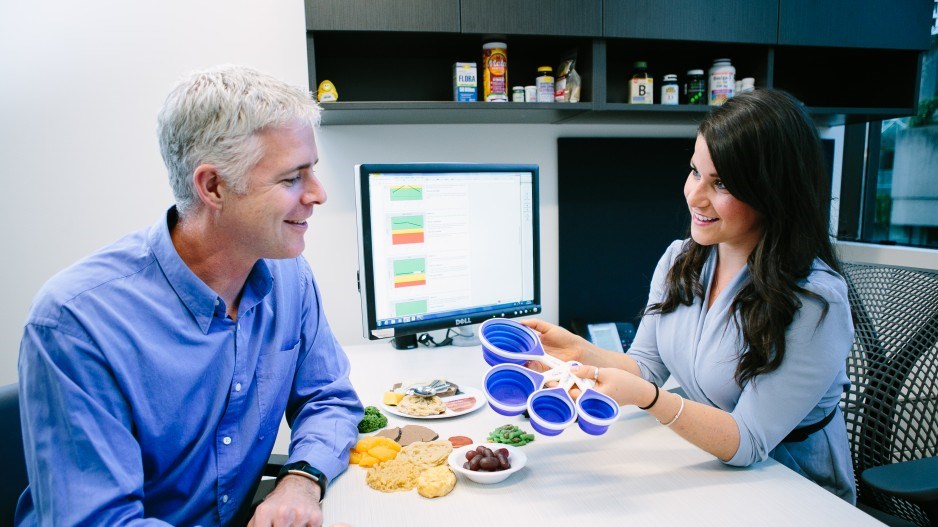We’re all familiar with the long-term benefits of healthy eating, such as emotional wellness and prevention of chronic diseases.
But in a world of instant gratification, good nutrition also provides the energy to meet deadlines, to stay focused during long meetings and to think clearly through complex tasks. The right foods, at the right time, can increase your brainpower, help you beat the afternoon slump, increase your patience and reduce irritability – setting the tone for healthy work relationships, as well as a healthy waistline.
Here are five ways to reap the immediate rewards of healthy eating and fuel yourself to perform at your best throughout the busy workday.
1. Choose brain-boosting foods
Foods rich in omega-3 fatty acids, such as avocado, walnuts, flax, soybeans and salmon, help to enhance memory, cognition and overall moods. Rich-coloured produce – like berries, broccoli and red peppers – contain antioxidants that aid in boosting brain function. Low-glycemic-index carbohydrates, such as yams, lentils and Greek yogurt, will also give your brain sustained energy throughout the day.
Copeman tip: Infuse your menu with brain-boosting foods. Stick to small, simple entrées, avoid fried foods and skip the white rice or bread when eating out.
2. Break the fast; don’t skip breakfast!
Studies show that those who eat breakfast typically consume fewer calories in comparison to those who skip the first meal of the day. Skipping breakfast can also sabotage your performance and drive. Kick-starting your day with a healthy breakfast can increase concentration, enhance problem-solving abilities and improve your general attitude.
Copeman tip: Incorporate some protein into your breakfast to “wake up” your brain, promote alertness and help you withstand stress.
3. Eat every four to five hours to sustain energy levels
Keeping healthy snacks at your desk, within reach, provides a sustainable source of nutrition and a healthy alternative to the energy-depleting junk food that typically lurks in offices. Fresh fruit, vegetables and hummus, nuts, roasted chickpeas and Greek yogurt are all good options.
Copeman tip: Keep a supply of healthy snacks in your car, as well.
4. Eat balanced, nutrient-dense meals
An adequate variety of vitamins, minerals, amino acids and omega-3 fats helps to keep your brain operating at full mental capacity. Fill your plate at mealtime with plenty of fruits, vegetables, whole grains and quality proteins – steer away from added sugar, fried foods and highly refined grains.
Copeman tip: If you don’t have time to prepare balanced meals yourself, try using a prepared meal service.
5. Hydrate to feel great
Your brain is approximately 80% water. Unsurprisingly, then, poor hydration will adversely affect your ability to concentrate. Studies show that mental performance and physical co-ordination start to become impaired even before thirst is perceived. Women should consume about 2.7 litres of fluid per day; for men, about 3.7 litres is recommended. Twenty per cent of your daily fluid intake can be derived from foods. Make sure half your fluid intake is from water.
Copeman tip: If water’s too boring, stock up on True Lime (or Lemon), Nuun All Day or any brand that offers a naturally flavoured, unsweetened carbonated water.




